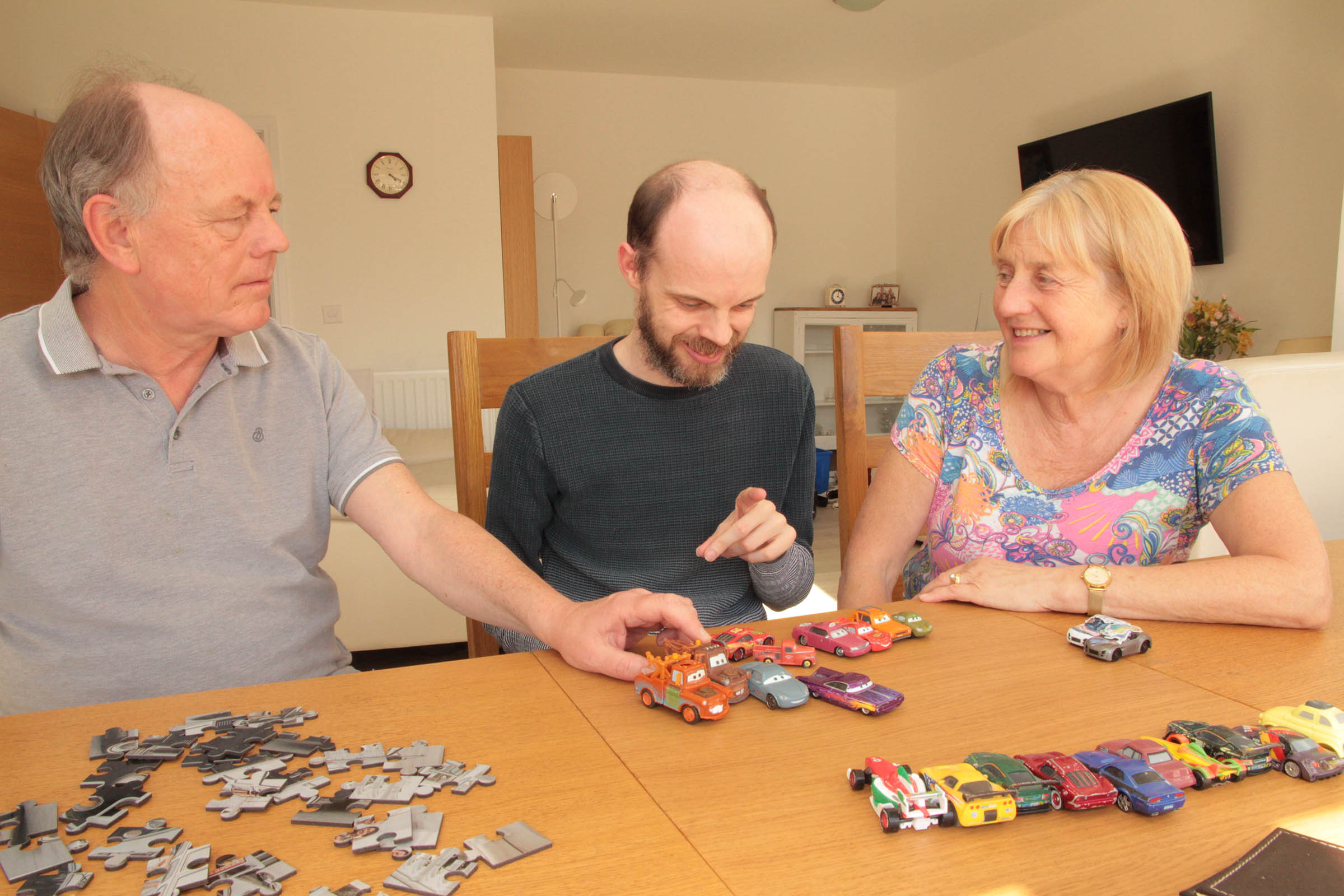Time out for carers – why it is important and what charities are doing to make a change
By Sheleagh Llewellyn, Ategi’s Fundraising Manager
In recent years the changes needed in UK social care have been driven by a desire to improve the quality and flexibility of services. Whilst there may have been some good intentions, a combination of factors have resulted in a social care system that is now in crisis, with long waiting lists, acute staff shortages, widespread difficulty in recruiting new carers and support staff, challenges in terms of funding and workforce capacity, as well as concerns over the quality and consistency of care provision. How have things got this bad and what are charities doing to address these challenges?
The decade of austerity cuts since 2010 fell heavily on social care - at the time of the 2021 census there were over half a million UK adults on the waiting list for a social care assessment. There has been little improvement since - after Covid-19 restrictions were lifted, social care departments received a surge in demand due to pent up demand. As waiting lists build, the impact on people who are already in need of support is grim. The longer people wait for an assessment, the higher the risk that their condition will deteriorate, they will become mentally or physically unwell, they will suffer a fall, or continue to suffer unreported or concealed abuse or neglect.
One major contributing factor in this crisis is a shortage of carers and support staff. Carers face challenges across all areas of their lives – financial strain, emotional stress, lack of support, isolation, difficulty balancing caring with other responsibilities, physical strain, lack of recognition and last but not least, limited access to respite care. It is no wonder that it can be difficult to recruit new carers into this much needed, highly skilled and undervalued work. Ensuring and improving the employment terms and conditions of carers and support staff offers an achievable way forward in addressing the crisis. One of the areas that could do with improving is access to short breaks and holidays - both for carers and the people they support.
Article 14 of the UN Declaration of Human Rights states that: ‘Everyone has the right to rest and leisure, including reasonable limitation of working hours and periodic holidays with pay’. In the UK, almost all people classed as workers are legally entitled to 5.6 weeks' paid holiday a year (known as statutory leave entitlement or annual leave). At Ategi, we employ support workers and manage a team of self-employed Shared Lives carers. In theory, Shared Lives carers can take holiday whenever they like, since there is a responsibility to ensure that respite care is available to the person who is being supported. In addition, the guidance on commissioning and funding of Shared Lives services states that contractors should ensure that carers are not responsible for providing 24/7 care and support and that in order to ensure the wellbeing of both adults who are supported and their carers - respite breaks are available when needed.
In other care contexts there are several reasons why time off and breaks can be difficult to access. Firstly, the desperate shortage of care staff means that there are simply not enough support workers available to stand in to provide respite. Another factor is that respite care can be very expensive – especially when hiring a full-time support staff. Whilst there is some financial support from Local Authorities, it is means-tested, so the person providing support and the person they care for may have to contribute towards the cost. Depending on the company and the package that is chosen, respite care is financially out of reach for many. Other obstacles include sensitivity in relation to stigma, support staff may feel that they are failing in their caregiving role if they need to seek respite care and other carers, in particular unpaid carers who support a family member, may be reluctant to take a break from caregiving or may not feel comfortable leaving their loved one in the care of someone else. A further reason is that some carers, again, particularly unpaid carers, may not be aware of the respite care services available to them or may not know how to access them - confusing and restrictive eligibility criteria and lack of information are often an issue. Social care support provider charities such as Ategi play a key part in solving this crisis. In particular through our Shared Lives service.
Here are some of the benefits of providing a Shared Lives support service, both for the carer and the person being supported:
- Many Shared Lives carers who open up their homes to care recipients often do so because they want to make a positive difference in someone's life. Shared Lives can give them the opportunity to provide this support in a meaningful way.
- Shared Lives provides carers with a supportive network of professionals who can help them navigate any challenges that arise during the caregiving process. This can include support with training, guidance on best practices, and access to resources that can help the carer provide the best possible care.
- Shared Lives can offer financial support to carers. Carers who participate in Shared Lives receive payment for the care they provide, which can help alleviate some of the financial burden that comes with caring for someone full-time.
- Shared Lives is often more cost-effective than other types of care, such as residential care or care homes. This is because it is a family-based model that utilises existing resources and does not require significant capital expenditure.
- Shared Lives has been shown to have positive outcomes for the person receiving care, including improved physical and mental health, increased socialisation, and a greater sense of independence.
- Shared Lives can offer carers the opportunity to take a break and recharge, knowing that the person they support is in good hands with another trained and vetted Shared Lives carer.
Whilst there is legislation and regulation that promotes the rights, independence and wellbeing of individuals using social care services, there are not enough resources available to ensure adequate support. oth the English and Welsh governments have focussed efforts to make some improvements, but they could be doing much more to solve the problem e.g. Incentives to encourage more people to enter the care sector, better support to enable carers to and people supported to have breaks, improving working conditions and pay, and generally raising the status of care work.
Shared Lives programmes that employ carers to provide support in their home are proving that there are realistic solutions to the social care crisis. Shared Lives placements costs far less than residential care, currently saving Local Authorities around £30,000 per person, per year. It would make sense to use some of this saving to increase investment in respite care, protecting the well-being of carers and the stability and sustainability of each arrangement for support. The shortage of care workers is a major challenge facing everyone who is affected by the social care system. To quote Nelson Mandela, “Overcoming poverty is not a gesture of charity, it is an act of justice. It is the protection of a fundamental human right, the right to dignity and a decent life.” This should include the right to rest, leisure and time off for the 5 million UK carers who looking after adults who need additional support.
Carers face challenges across all areas of their lives – financial strain, emotional stress, lack of support, isolation, difficulty balancing caring with other responsibilities, physical strain, lack of recognition and last but not least, limited access to respite care.

Meet Martin & Liz, Ategi Short Breaks Shared Lives carers
Martin & Liz are Short Break carers based in South Gloucestershire. They support Martin's father and their son Stephen, who has severe learning disabilities and autism. Around 10 years ago Stephen was at a residential college and he wasn’t coping living with other people. At that point Martin and Liz decided to move Stephen into a Shared Lives arrangement. Stephen would stay with them overnight and for Shared Days. Through exploring Shared Lives like this Martin and Liz saw that Stephen was happy socialising with other adults with additional needs. Which is when they started the process of becoming Shared Lives carers themselves, they now offer Shared Days and Short Breaks.
Read Martin & Liz's story here
Shared Lives can offer carers the opportunity to take a break and recharge, knowing that the person they support is in good hands with another trained and vetted Shared Lives carer.










About the author
Sheleagh Llewellyn
Sheleagh has been working in the voluntary sector for 38 years, in both a paid and unpaid capacity. During the early noughties, she was the leader of the Voluntary Sector pathway within the BA Community Studies at the University of Wales College Newport. She is Fundraising Manager at Ategi and she is a fellow of the Schumacher Institute, which aims to tackle today's social and environmental problems by applying systems thinking and the power of networking.